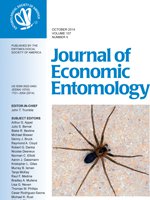The Oriental Fruit Moth Grapholita molesta (Busck) causes substantial damage to stone and pome fruit crops worldwide. Light-based traps offer a potential means for pest monitoring and management. In this study, we tested the preference of G. molesta for the following light sources: monochromatic light produced from light-emitting diodes (LEDs) (red, orange, yellow, green, blue, violet, and white), specific wavelengths of light produced from filters (405, 450, 480, 512, 540, 576, and 610 nm), and polychromatic light produced by different numbers (0, 12, 24, and 36) of green, blue, and violet LEDs. The arrangement of polychromatic lights was based on an orthogonal design matrix of L16 (43). Based on the results of former studies, we further determined the optimal number of green and violet LEDs. The results showed that: 1) G. molesta strongly preferred the green, violet, and blue LEDs; 2) G. molesta significantly preferred light at 405 nm, followed by 540 nm, and showed no phototaxis to 480 nm; 3) for the polychromatic light configuration, violet and green were the factors that determined the preference of G. molesta, and the lamp with 12 violet LEDs captured the most moths; and 4) for the lamps with different light intensities, 36 violet LEDs or 12 green LEDs attracted the most moths, with the former performing better.
How to translate text using browser tools
1 October 2014
Phototaxis of Grapholitha molesta (Lepidoptera: Olethreutidae) to Different Light Sources
Y.-X. Sun,
A. Tian,
X.-B. Zhang,
Z.-G. Zhao,
Z.-W. Zhang,
R.-Y. Ma
ACCESS THE FULL ARTICLE
It is not available for individual sale.
This article is only available to subscribers.
It is not available for individual sale.
It is not available for individual sale.

Journal of Economic Entomology
Vol. 107 • No. 5
October 2014
Vol. 107 • No. 5
October 2014
Grapholita molesta
light intensity
light source
orthogonal design
phototaxis




